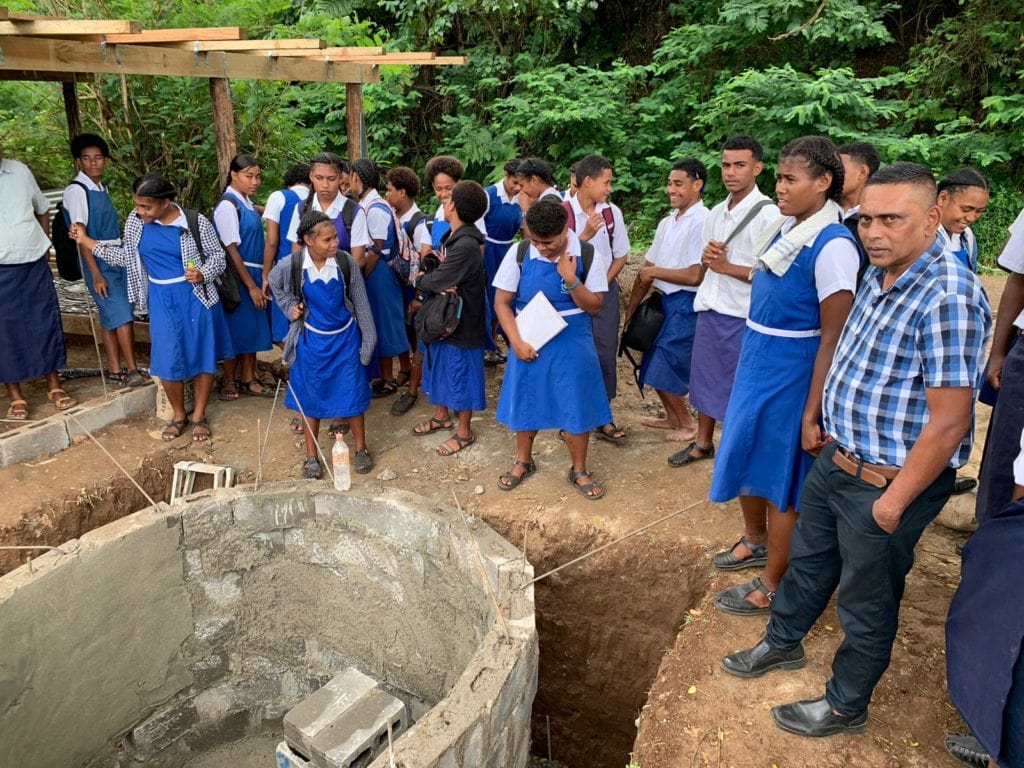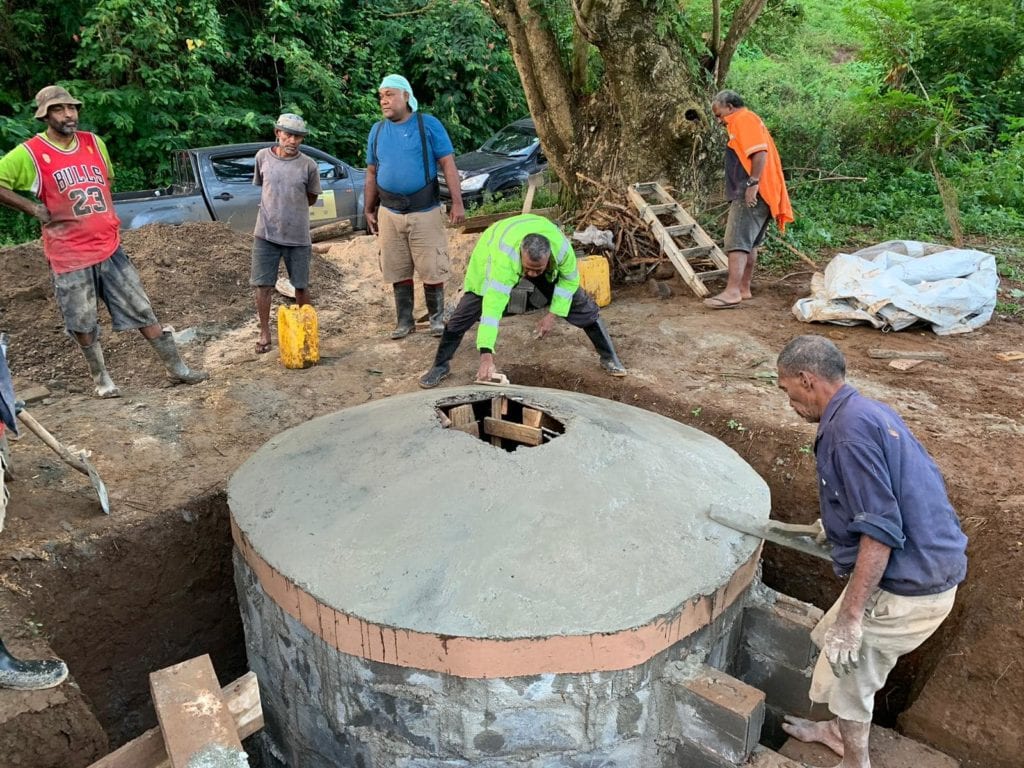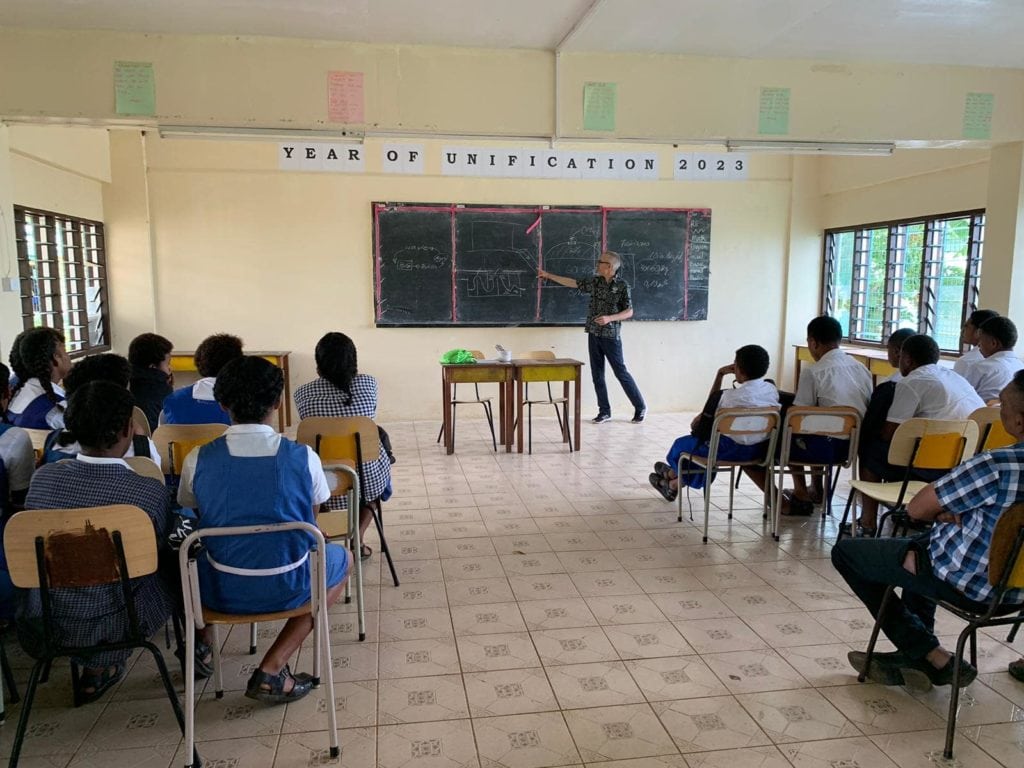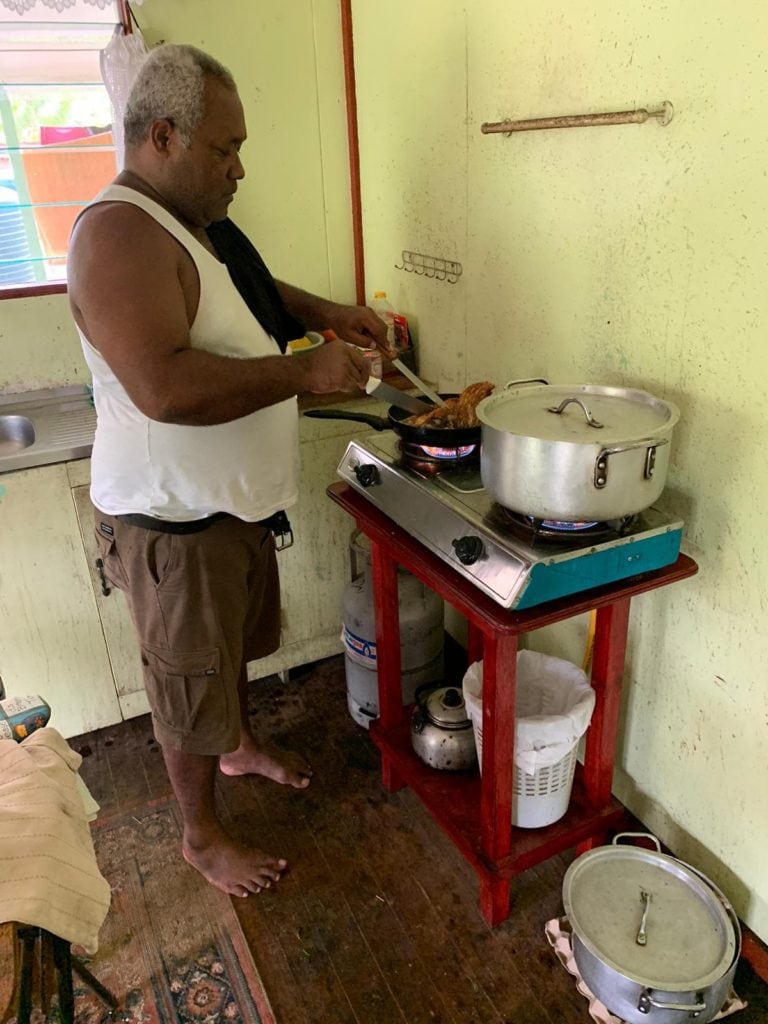
In 2016, a typhoon destroyed the island of Koro, one of the main islands of Fiji. Since then, the Adventist Development and Relief Agency (ADRA) in Austria has been providing reconstruction aid with a focus on alternative agricultural methods and climate-neutral energy production. In May, ADRA Austria director Marcel Wagner traveled to the island to lead a team in the construction of an autonomous biogas plant.
A Simple Design
ADRA Austria reported that the construction of a biogas plant is very simple. The fermentation cylinder, with a volume of 6 cubic meters (212 cubic feet), is built of bricks in a pit about 1.5 meters (5 feet) deep. After completion of the cylinder, soil is poured around the cylinder to create sufficient stabilization forces against the pressure generated inside. At 0.5 bar (about 7 psi), this is a relatively low pressure and is caused by the natural fermentation of human and animal feces.
Since transporting concrete to the Pacific island, located about 2,000 kilometers (1,240 miles) from Australia, is very expensive, an alternative mix of locally available resources was used. In addition to the bricks, only rubber hoses are needed to distribute the gas to households. The total cost of one system amounts to around 2,500 euros (about US$2,737). However, this investment will pay for itself within a few years, as imported gas cylinders are extraordinarily expensive, ADRA leaders said.
Energy for Three Households
According to ADRA Austria, such a small biogas plant produces enough gas for about three households and can be built easily and with the cooperation of the residents. It enables families to become independent of high gas prices.




Even then, it is not always easy for families to finance the construction costs. But ADRA has managed to finance the project through savings associations established on the Fiji Islands. The association of many small private savers makes it possible to come up with funds to build plants such as the one just completed in Koro. The prerequisite, however, is that the families earn an income from the gas plant so that they can repay the capital to the savings associations, ADRA leaders explained.
Knowledge Transfer
“Through projects such as this, ADRA Austria is helping people to help themselves,” ADRA leaders said. “To this end, it is important that knowledge is passed on within the population and that people learn to benefit directly from the know-how imparted.” On the island of Koro, they explained, the transfer of knowledge takes place through cooperation with the university located there.
“ADRA strives to enable people to live a self-determined life characterized by sustainability and autonomy,” Wagner said.
The original version of this story was posted by ADRA Austria.